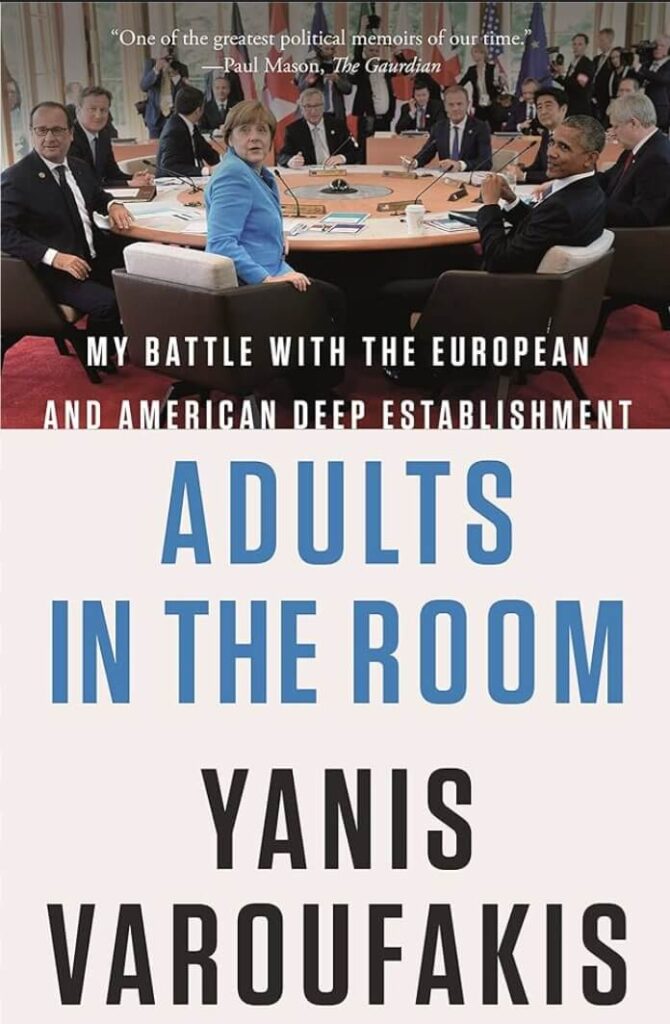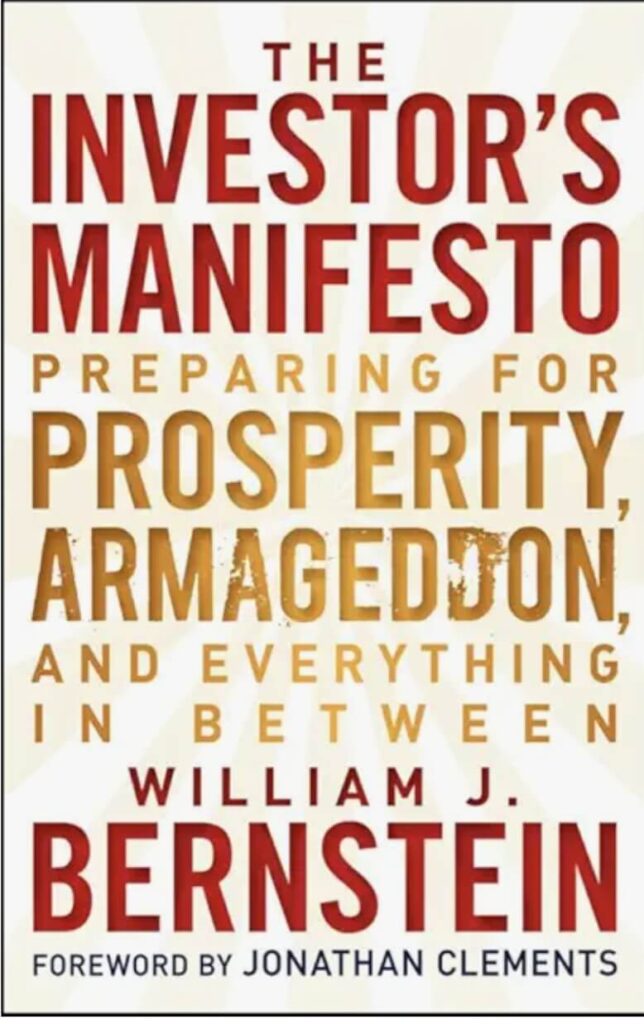What happens when a country says “no” to austerity, and the world’s most powerful institutions reply with “too bad”? In Adults in the Room, Yanis Varoufakis chronicles one of the most extraordinary — and controversial — episodes in modern European history: Greece’s fight for economic sovereignty in the wake of its debt crisis.
This is not a dry memoir. It’s a gripping political thriller, a philosophical reflection, and a crash course in Eurozone dysfunction — all from someone who was not just in the room, but often at the center of the storm.
💡 Why This Book Matters
Varoufakis served as Greece’s finance minister during a pivotal six-month period in 2015. Elected on a promise to end austerity, the Syriza government quickly ran into the immovable wall of European economic orthodoxy — a system dominated by technocrats and opaque decision-making.
Adults in the Room documents Varoufakis’s David-versus-Goliath struggle against the “Troika” — the European Commission, the European Central Bank (ECB), and the International Monetary Fund (IMF). The book is a first-person narrative, but it serves as a powerful critique of how Europe governs its economies, revealing a world where economic necessity is often overruled by political ideology.
🎭 A Greek Tragedy in Real Time
The book unfolds like a drama: there’s hope, betrayal, power plays, secret recordings, backroom meetings, and ultimately, defeat. Varoufakis’s detailed accounts of negotiations in Brussels and Berlin provide a rare, candid look into how decisions affecting millions of people are made — or not made — behind closed doors.
From high-stakes conversations with Christine Lagarde and Wolfgang Schäuble to late-night calls with Alexis Tsipras, we get the unfiltered inside story. And it’s not pretty. The so-called “adults in the room,” Varoufakis argues, were more interested in protecting their narrative than solving real problems.
🧠 What You’ll Learn
⦁ The Limits of Democracy in the Eurozone: Varoufakis shows how democratic mandates — like Greece’s 2015 referendum rejecting bailout terms — are often ignored when they conflict with EU financial policy.
⦁ The Power of Bureaucracy: The Eurogroup (a body of finance ministers) operates without formal rules or minutes. Critical decisions are made informally, with no accountability.
⦁ Economic Dogma vs. Real-World Impact: The book challenges the idea that austerity was ever a viable solution. Instead, Varoufakis argues, it prolonged suffering, deepened recession, and made debt harder to repay.
⦁ The Personal Toll of Public Service: As Varoufakis takes readers through sleepless nights, security threats, and political betrayal, we see the human cost of standing up to entrenched power.
📚 Style and Structure
At over 500 pages, this is not a quick read — but it’s never dull. Varoufakis writes with wit, passion, and philosophical depth. His academic background shows in his analysis, but his storytelling keeps things engaging.
The prose balances technical detail with narrative flow. Economic terms are explained clearly, and personal anecdotes ground even the most abstract discussions in real-life consequences.
🤔 Controversies and Counterpoints
Of course, this is Varoufakis’s story — and he tells it on his terms. Critics argue that he paints himself too heroically or downplays the risks of his strategy. Some say his tactics were overly confrontational or lacked pragmatism.
But even if you don’t agree with every move he made, Adults in the Room remains a vital account. It forces readers to confront uncomfortable truths about how international economics really works — and who gets to make the rules.
📆 Still Relevant Today
Though it recounts events from nearly a decade ago, the themes in Adults in the Room feel remarkably current. Questions about debt, democracy, and technocracy haven’t gone away. If anything, they’ve become more pressing as countries grapple with post-COVID recovery, inflation, and economic inequality.
For students, policymakers, and anyone interested in the intersection of economics and power, this book is essential. It’s a cautionary tale and a call to arms.
✅ Why You Should Read This Book
⦁ It gives you a front-row seat to one of the most high-stakes political negotiations in EU history.
⦁ It demystifies European economic governance and exposes its flaws.
⦁ It challenges dominant narratives around austerity and fiscal discipline.
⦁ It shows what happens when a government tries to prioritize its citizens over creditors — and how the system responds.
💬 What Readers Are Saying
“A brutal, brilliant book.” — Many reviewers praise Varoufakis’s honesty, depth, and storytelling skill.
“Infuriating and eye-opening.” — Readers are often shocked by the undemocratic processes described.
“A must-read for anyone interested in the future of Europe.” — The book has become a key text in understanding the politics of the Eurozone.




